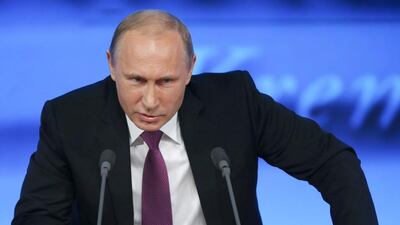The UK is to use a series of international summits to call for a new international push against Russia, in the wake of an aggressive Kremlin propaganda campaign over the use of chemical agents in Britain and Douma.
A report in The Guardian claims British diplomats are to use four major international summits later this year to strengthen the diplomatic alliance in the wake of the poisoning of defected Russian spy Sergei Skripal. The G7, G20, Nato and European Union summits will all be used to garner international support in pushing back against Russia.
It is believed that UK ministers would push for a “broad containment strategy” targeting cyber-security, Russian disinformation, financial sanctions on Kremlin-linked oligarchs and Nato’s military positioning.
A Whitehall official told the paper: “The foreign secretary [Boris Johnson] regards Russia’s response to Douma and Salisbury as a turning point and thinks there is international support to do more”.
“The areas the UK are most likely to pursue are countering Russian disinformation and finding a mechanism to enforce accountability for the use of chemical weapons,” the official added.
_________
Read more:
Russia slammed for ‘obscene masquerade’ at OPCW
UK territories ordered to open up about secretive companies
_________
UK Prime Minister Theresa May was able to rally diplomatic support in the wake of the Skripal poisoning, successfully encouraging more than 20 states, including the US and Canada, to expel more than 120 Russia diplomats in response to the incident.
The new diplomatic push would represent an effort to turn domestic consensus, international.
The UK has seen domestic cross-party support for containment of Russia following the Salisbury attack, most notably last week in the adoption of stricter financial transparency regulations for overseas British territories, seen by many as havens for illicit Russian cash.
Alicia Kearns, who formerly ran the UK Foreign Office’s strategic communications in Syria and Iraq, said: “When we are dealing with most malign states or even terror groups, an element of truth is expected to increase the efficacy of their disinformation, but with Russia there is no commitment, or adherence, to the truth.”
“There is a reluctance in the Foreign Office to be forceful in our calling out of Russian falsehoods, fearing that it could end or frustrate wider dialogue with Russia,” she adds.
Tom Tugenhadt, Chairman of the Foreign Affairs Select Committee, told The Guardian: "Putin is waging an information war designed to turn our strongest asset – freedom of speech – against us. Russia is trying to fix us through deception".
However, not all were onboard with the new push. Sir Anthony Brenton, a former British Ambassador to the UK, insisted that diplomacy should remain at the forefront of the British strategy to engage with Russia.
“What on earth was her majesty’s foreign secretary doing comparing the Russian World Cup with Hitler’s 1936 Olympics? If you are looking for a single statement really calculated to infuriate the Russians there it is, or indeed the defence secretary telling Russia to shut up.”
He added: “Elementary diplomacy goes a long way with the Russians and we need to get back to that.”


